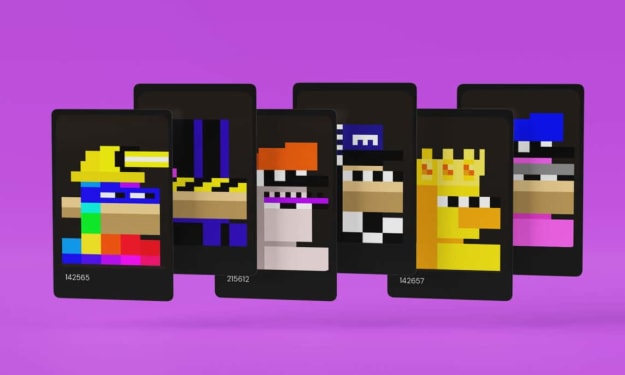
Cryptocurrencies are widely popular because they allow the owner to store and gain value in a nonconventional way. Unlike regular money, crypto such as Bitcoin puts more power into the currency holder's hands while also providing a more protected and private means to trade. Unlike our regular standard currency, cryptocurrency is not controlled or owned by the government, making it more desirable. Another popular factor is that cryptocurrencies are so heavily encrypted that they are near impossible to forge making them safer than the dollar bills in your wallet. Because there is such a big market for bitcoin and other crypto, a real-life market has developed rather than just one online, meaning that big companies like Microsoft and Gucci accept them as a form of payment.
So if Bitcoin is so amazing and opens a whole new pathway in the world of finance why is it so bad? Short answer; the carbon emissions. Most people don't realize that Bitcoin transactions and mining (the process in which a transaction is verified and how new Bitcoin comes into circulation) are detrimental to the environment because of the power it requires. One Bitcoin transaction uses on average the same amount of power that one American household will use in a month. Compared to a credit card transaction, Bitcoin uses around a million times the amount of power.
So how exactly does Bitcoin mining work? Well if you wanted to cash a check or make a transaction you would go to the bank and they would verify it for you. Bitcoin works a bit differently. The network in which Bitcoin transactions travel once requested is called blockchain. Bitcoin miners will then take those transactions from blockchain and work to validate them by solving the cryptographic puzzle. Giant mining factories called farms work constantly to solve these puzzles. This process uses hundreds of mega computers that never get turned off meaning they never stop working. This makes the process completely reliant on heavy amounts of computer power. The miner who solved it is then rewarded with, you guessed it, new Bitcoin. This makes all parts of Bitcoin rewarding, even if you are not the one directly trading it.
However, there are ways to reduce the harm that these Bitcoin farms have. Farms that chose to have renewable energy sources such as solar panels and wind turbines have much better outcomes for the environment compared to factories that rely on fossil fuels. There is also action going into creating cryptocurrencies that would not rely on harmful mining practices at all.
In a time when we are on the verge of a climate disaster, this is the last thing we should be doing, yet there remains to be any regulation on cryptocurrencies that would reduce the problem. Bitcoin doesn't exist in one specific place meaning that it is very difficult for one government or legal body to make rules on it because it would need jurisdiction across borders. Because crypto is independent and freewheeling there are a lot of questions about how assets should be managed and how taxes would work on said assets meaning the government has a hard time grasping it. However, countries like China, Iran, and Egypt have made steps to ban all forms of cryptocurrencies, both to help the environment and protect their own financial systems.
The more popular these systems like Bitcoin and NFTs get the more we are contributing to our worsening climatic state. While Bitcoin can be a very profitable investment, understand and be aware of the harm and effects it has on the planet and consider using other currencies like Cardano and Chia that are more environmentally friendly than Bitcoin.
About the Creator
Emma B.
Writer of personal interests, I dabble in a little bit of everything.






Comments
There are no comments for this story
Be the first to respond and start the conversation.